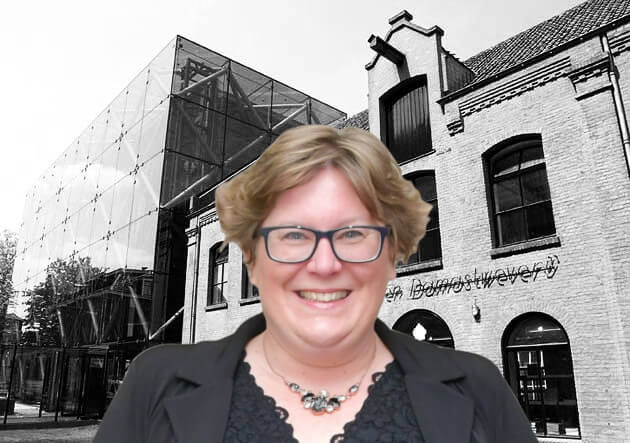
“Stand on the shoulders of giants” has been the slogan of Google Scholar for years. Fewer and fewer people seem to realize how important it is to be able to stand on the shoulders of giants. The other day I even heard a high school teacher argue that the whole concept of citing sources should be abolished. A citation of a source means that you honor the ‘giants’ on whom you base your knowledge. It is only when you understand where knowledge comes from that you are able to add something to that knowledge. A teacher who speaks so disparagingly about the notion of sources has no place in higher education.
Actively cultivating knowledge is what makes us human. We are the only species in the world that is capable of contributing to an active process of knowledge development. And that process of knowledge development is fundamental; not only for our own growth, but also, as the current corona crisis reveals, for our ability to survive.
An enormous beauty emanates from the process of knowledge development. I see every piece of knowledge as a unique LEGO block which can click onto other LEGO blocks in a variety of ways and in which all those individual blocks have no beauty in themselves but can conceal a magnificent totality in the overall structure. Nothing is so liberating and enlightening as spending the whole night puzzling away on all kinds of scientific studies, until they click together in such a way that a stunning new insight emerges.
Second fiddle
It is precisely this enlightening effect that knowledge has that has got me thinking lately. As it turns out, a few weeks ago my book ‘Marketing Design’ won the PIM Marketing Literature Prize and one of the judges described my book as enlightening in the midst of all the books about data. It took a few days before the significance of that description hit me. Apparently, we are in need of enlightenment. I realized that the Enlightenment is a period that we almost seem to have forgotten. A period which lies behind us instead of a new period which could also lie ahead of us. The beauty of science and reason is in danger of slipping further and further into the background. Those people whom Google defines as ‘giants’ are increasingly playing second fiddle: They are at best advisors, but they are not behind the controls.
In the Economisch Statische Berichten (ESB, a Dutch professional magazine for economists), Pierre Koning, professor at the VU, recently called for less attention to be paid to the process and more attention to content at the ministries. He describes a picture that is all too familiar: It is often considered more important to understand how the lines run than to have actual substantive knowledge of a dossier. This is not only the case at the ministries, but tends to be widespread across the public sector too. There are university professors at universities of applied sciences who are responsible for the allocation of research funding but who know even less about doing research than the first-year students under their tutelage. There are policymakers who switch jobs at least once every two years and as such make an art form out of never knowing the ins and out or the lay of the land. And there are directors in the public domain who even refuse to be informed of anything substantive, because being informed means having to take responsibility. I’ve seen it all and I’m sure you can come up with a few examples yourself as well.
LEGO or scrap heap?
Whenever it is not knowledge that is governing, then knowledge can put the one who is governing in a tricky position and that should be averted at all times by the levels underneath. When process prevails over substance, degeneracy is looming. And that is precisely what has been evident in the world in recent years.Types like Trump, who do not hide their disdain for science, do not advance society any further but let society stagnate instead. Ministers who have no substantive knowledge of the field in which they are ministers are continuously lagging behind in terms of the facts [it is even more appalling when that minister has to manage the corona crisis].
When knowledge does not constitute the basis of power, society finds itself prone to ad hoc fits and starts. When process proficiency prevails over substantive knowledge, the process of knowledge development slowly crumbles. It then no longer forms an ingenious LEGO structure, but loose heaps of scrap which occasionally can be recycled, but very often not.
Building together
Living together means building together. In that building process, individual blocks fit together better when the person who decides which block will be placed where has the knowledge to assess the consequences of that construction decision. Our society does not necessarily need an extra injection of knowledge, but it needs the person who ultimately gives the injection to have the knowledge needed. Our society is ripe for a new Enlightenment. Let 2021 be an enlightening year for you.
About this column
In a weekly column, written alternately by Wendy van Ierschot, Eveline van Zeeland, Eugene Franken, Jan Wouters, Katleen Gabriels, Mary Fiers en Hans Helsloot, Innovation Origins tries to figure out what the future will look like. These columnists, occasionally joined by guest bloggers, are all working in their own way on solutions to the problems of our time. So that tomorrow is good. Here are all the previous articles.

